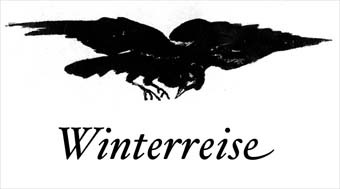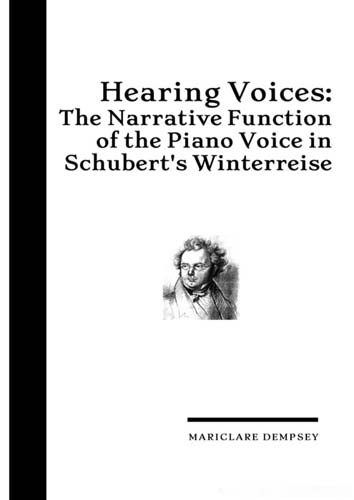Mariclare Dempsey
Hearing Voices: The Narrative Function of the Piano Voice in Schubert's Winterreise
Abstract: Franz Schubert (1797-1828) composed his last song cycle Winterreise in the spring and fall of 1827. The text for this celebrated work comes from a set of twenty-four poems written by Wilhelm Müller (1794-1827) and describes the physical and emotional journey of the protagonist after he has been rejected by his loved one.
In this thesis I will analyze the narrative relationship between the voice and the piano and its development throughout the cycle, using the methodologies of Edward T. Cone and Carolyn Abbate. Musico-poetic works can be challenging to view as a seamless piece in which both music and text work together to create a full image of the narrative. By distinguishing the personas of the vocal and piano parts, however, and assessing their distinct “voices” (separately and in collaboration) it is possible to view them as a cohesive whole and grasp the full meaning of the song cycle. The melody sung by the cycle’s protagonist, often referred to as “the Wanderer,” bears much of the obvious burden for narrating Müller’s poetry as the Wanderer’s conscious voice. The Wanderer’s unconscious emotions that guide his journey are found in the piano part which plays an integral role by setting the scene, providing insights before and after the singer’s words, and even actively consoling and inspiring the Wanderer as he pours out the tale on stage for all to hear. An understanding of Schubert’s narrative can only be grasped by analyzing the relationships between both the voices of the singer and the piano.
© Mariclare Dempsey 2020
Click on the image for the full text



